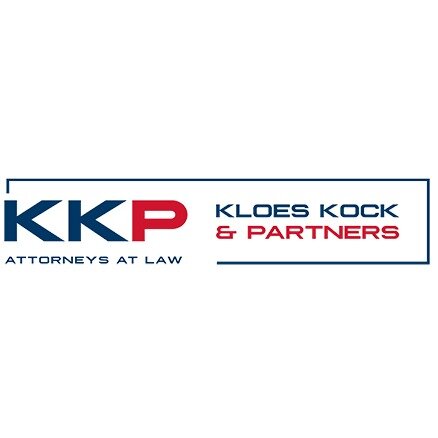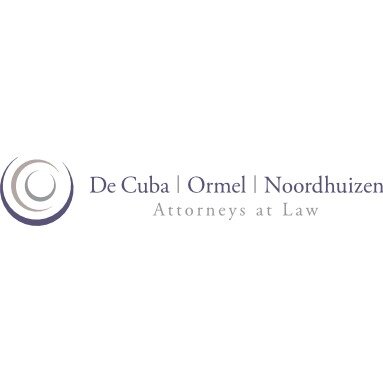Best Sanctions & Export Controls Lawyers in Oranjestad
Share your needs with us, get contacted by law firms.
Free. Takes 2 min.
List of the best lawyers in Oranjestad, Aruba
About Sanctions & Export Controls Law in Oranjestad, Aruba
Sanctions and export controls refer to laws and regulations governing the trade of goods, technology, and services between Aruba and other countries, as well as the enforcement of economic sanctions imposed by local and international authorities. In Oranjestad, the capital of Aruba, these rules help ensure that exports do not contribute to international conflicts or violate global agreements. Aruba, as a constituent country of the Kingdom of the Netherlands, often aligns its policies with both Dutch and international standards, particularly those from the European Union, United Nations, and the United States.
Why You May Need a Lawyer
Sanctions and export control laws can be complex and constantly evolving. You may need a lawyer in situations such as:
- Running a business that imports or exports goods and technology
- Unsure whether your products or clients are subject to sanctions
- Facing investigations or enforcement actions related to suspected violations
- Seeking licenses or exemptions to export controlled goods
- Need for compliance programs to avoid accidental breaches
- Transferring funds or assets internationally
- Wanting to confirm which international sanctions regimes apply to Aruba
- Responding to requests from banks or customs authorities
Legal support can help you avoid severe civil, administrative, or even criminal penalties, and ensure your business practices are in line with all requirements.
Local Laws Overview
The legal framework for sanctions and export controls in Oranjestad is shaped by Aruba’s local laws, as well as its responsibilities within the Kingdom of the Netherlands. Key points include:
- Aruba may independently enforce United Nations or European Union sanctions as adopted by the Kingdom of the Netherlands
- The Ordinance on Sanctions implements certain international sanctions locally
- The Customs Administration of Aruba monitors and enforces controls at borders
- Certain dual-use items (goods with both civilian and military applications) are restricted and may require export licenses
- Banking and financial institutions in Oranjestad are required to identify and report transactions with sanctioned individuals or entities
- Severe fines, asset seizures, or even imprisonment can result from willful violations
- Exemptions and licenses may be available under certain circumstances, but must be formally requested and approved
- International trade involving strategic goods such as weapons, chemicals, or sensitive technologies faces stricter scrutiny
Businesses and individuals need to understand not only Aruban laws but also how international directives may directly affect their activities within Oranjestad.
Frequently Asked Questions
What are economic sanctions and export controls?
Economic sanctions are restrictions imposed by governments on specific countries, organizations, or individuals. Export controls regulate the movement of certain goods, technology, and software to other countries to protect national and international security.
Which authorities enforce sanctions and export controls in Aruba?
The Customs Administration of Aruba, the Department of Economic Affairs, and financial supervisory bodies are the primary local authorities. They work in coordination with Dutch and international agencies.
Do Aruba's sanctions differ from those in the Netherlands?
Aruba often adopts sanctions imposed by the Kingdom of the Netherlands but may implement them in a way that considers local circumstances or needs.
What goods are typically controlled or restricted?
Controlled items include military hardware, dual-use technology, chemicals, certain electronics, and some advanced software. Controls also cover financial flows linked to sanctioned entities.
How do I know if my business activities are affected by sanctions?
If your business involves exporting goods or services, or transferring money internationally, you should review current sanctions lists and consult with a legal professional to ensure compliance.
Can I get an exemption or license to export a restricted item?
Yes, under certain circumstances, you may apply for an exemption or a specific export license. Approval is required before conducting the activity.
What are the penalties for violating sanctions or export controls in Aruba?
Penalties can include significant fines, confiscation of goods, suspension of licenses, or criminal prosecution depending on the severity of the violation.
Are non-commercial transactions also regulated?
Yes, personal and non-commercial transfers that involve sanctioned individuals, goods, or destinations can also be subject to restrictions.
Is it enough to rely on international compliance software?
Compliance software can help, but local laws and specific requirements in Aruba may not be fully covered. Consulting a lawyer for tailored advice is the safest approach.
What should I do if I suspect a possible breach of sanctions in my business?
Immediately seek legal advice to understand your obligations. Voluntary disclosures may mitigate penalties, but only if handled promptly and correctly.
Additional Resources
For further information and guidance regarding sanctions and export controls in Oranjestad, Aruba, you can reach out to these bodies:
- Customs Administration of Aruba
- Department of Economic Affairs Aruba
- Aruba Chamber of Commerce
- Central Bank of Aruba - for financial compliance matters
- Kingdom of the Netherlands diplomatic missions - for guidance on international obligations
- Local law firms specializing in international trade and compliance
Referring to official government publications and consulting with professional organizations will also help stay updated on recent changes.
Next Steps
If you believe that your business or personal dealings could be affected by sanctions or export controls in Oranjestad, it is highly recommended to:
- Review your activities and identify possible risk areas
- Contact a qualified legal professional with experience in sanctions and export controls
- Gather all relevant documentation including contracts, licenses, and correspondence with foreign partners
- Establish an internal compliance program if you operate a business engaged in international trade
- Monitor official updates from the Aruban government and relevant international bodies
Taking these actions can protect you from unintentional violations and provide you with peace of mind. A specialized lawyer will guide you through compliance requirements, applications for exemptions, and responses to enforcement actions.
Lawzana helps you find the best lawyers and law firms in Oranjestad through a curated and pre-screened list of qualified legal professionals. Our platform offers rankings and detailed profiles of attorneys and law firms, allowing you to compare based on practice areas, including Sanctions & Export Controls, experience, and client feedback.
Each profile includes a description of the firm's areas of practice, client reviews, team members and partners, year of establishment, spoken languages, office locations, contact information, social media presence, and any published articles or resources. Most firms on our platform speak English and are experienced in both local and international legal matters.
Get a quote from top-rated law firms in Oranjestad, Aruba — quickly, securely, and without unnecessary hassle.
Disclaimer:
The information provided on this page is for general informational purposes only and does not constitute legal advice. While we strive to ensure the accuracy and relevance of the content, legal information may change over time, and interpretations of the law can vary. You should always consult with a qualified legal professional for advice specific to your situation.
We disclaim all liability for actions taken or not taken based on the content of this page. If you believe any information is incorrect or outdated, please contact us, and we will review and update it where appropriate.











